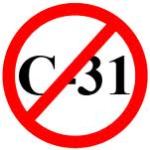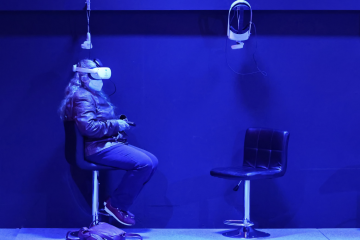Protecting Canada’s Immigration System Act – this is the title of Bill C-31 introduced by Canadian Minister of Immigration Jason Kenney, which received royal assent on June 28th 2012. The bill introduced several major changes to Canada’s refugee system. I will address the three clauses that, I find, cause the most doubt on Canada’s respect of the conventions it has signed on to, as well as on our supposed humanitarian values.
1. Newly-arrived refugee claimants have 15 days to present a written version of their refugee claim, down from 45 days.
Considering that a letter sent by mail from Ottawa to Montreal often takes a full week to reach its destination, I have difficulty imagining how a refugee would arrive to Canada; find a place to stay; get informed about the refugee claim process, sometimes without speaking English or French; navigate the city to locate the institutions he needs to access; find a lawyer that will adequately represent him; contact someone in his home country to have him sent the missing documents (including letters from previous employers, hard-copy emails, police record checks, proof of residence, etc.) – all of this in 14 days. For all asylum seekers who will attempt to put forth a complete, coherent refugee claim under this timeline, good luck. You will love Canada (if we let you stay here). In recent years, refugee claimants would have to wait an estimated 19 months on average before their initial hearing. This has been reduced to 45 days in some cases.
This situation carries similarities to our healthcare system, in which patients may wait years before securing a family doctor. A new law restricting the waiting list to one month may seem like a brilliant solution – the downside: patients will have a maximum of two minutes to explain their health concern, have the doctor assess it properly, and receive the right prescription. Do we have to stick to extremes, or could some middle ground not be found?
In its report on Bill C-31, the UNHCR has criticized these time limits: “the UNHCR recommends that the government balance the need for efficiency with the fairness of the asylum procedure”.
2. The Minister of Public Safety may designate a group as “irregular arrivals”
However, the 1951 Geneva Convention (of which Canada is a signatory) clearly stipulates that countries cannot penalize refugee claimants on the basis of false documents. Yet, the lack of -or falsified- documents seems to be the main basis for the determination of “irregular arrivals”, along with the suspicion of “smuggling”. These persons may face mandatory detention if they are 16 years of age; do not have access to an appeal process; and cannot apply to bring their family members to Canada for five years until after they are granted refugee status. If the government would rather label this process as “protecting public safety” in order to avoid the expression “penalize asylum seekers”, then it might as well ignore the entire Geneva Convention by renaming its discriminatory practices in such a way that sounds nice to the public ear.
Brian S. Brooks explains that there has been a trend in Western societies wherein certain words are appropriated by people of power (scientists, the media, politicians), are then manipulated by the latter, and finally reverted back to the public with added normative meaning. Terms such as “human rights”, “justice”, “the public good” then take on a moral imperative, and become a tool used by politicians to pass certain policies.
“Terrorism” is one such word used by Minister Toews when defending the necessity to exercise mandatory detention on irregular arrivals. Needless to say that terrorists who arrive to Canada with false documents are the exception. Interestingly, terrorists born and raised in Canadian society are also the exception – yet we do not live in one giant detention center where we are suspects before proven innocent. Perhaps we expect all individuals fleeing persecution in their home country to arrive comfortably by Air Canada, carrying a suitcase containing neatly organized documents they knew would satisfy Canadian border officials.
3. The Minister of Citizenship and Immigration is given the power to designate a list of “Designated countries of origin” (DCO) without input from an expert panel, and without possibility of removing a country from the list
The federal government website cites that “The aim of the DCO policy is to deter abuse of the refugee system by people who come from countries generally considered safe”. Refugees coming from these countries are subject to an expedited claim process; do not have access to basic health care; and have no right of appeal. The first round of safe countries appeared on December 15th: it includes all European Union countries, in addition to the United States. A second round was introduced on February 15th, which added Australia, Iceland, Japan, New Zealand, Norway, Switzerland, Israel and Mexico to the list.
According to the Canadian Council for Refugees director Janet Dench, the safe countries list represents “a lack of commitment to Canada’s international commitments to refugee protection, which require a full, fair and impartial assessment of refugee claims on an individual basis. The provision allows for judgments to be based on groups rather than on individual claims.”.
Never mind that the Roma are recognized as a persecuted minority in Hungary (now a DCO). Never mind that Canada has already granted refugee status to thousands of Mexican asylum seekers. Never mind also that Mexico is the one and only country in Latin America deemed safe (surely, persistent drug-related violence, police corruption, and homosexual persecution do not constitute legitimate grounds for a refugee claim). It seems quite obvious that the addition of Mexico to the list only in the second round stemmed from the hope that “this would divert attention away from it”, says Ms. Dench.
The UNHCR report cites that “while the concept of DCO can work as an effective decision-making tool, it is important that the general assessment of certain countries of origin as safe is based on reliable, objective and up-to-date information from a range of sources.”.
How can this standard be respected if the decision comes from a single individual, without the input of a panel of experts?
Some Leftist thoughts
As a student supposed to exhibit optimism, idealism, and leftism, I must confess that upholding these ideals has proven increasingly difficult since the introduction of a series of legislation that are proving to be significant barriers to persons seeking refuge in Canada (first C-11, then C-31, followed by cuts to the Interim Federal Health Program). Beyond my university surrounding, I am frightened to see that people are accepting in large numbers the vernacular of Jason Kenney that focuses on “bogus” refugees and “illegal migrants” here to abuse of ‘the system’ (hey, isn’t this term supposed to be used strictly by Leftist students?).
Of course, this isn’t anything new. The paranoiac fear of “the other” has fuelled numerous discriminatory policies in Canadian history, from the Chinese head tax in the 1890s to the rejection of Jewish refugees during World War II, to racial profiling for Muslims at the airport after 9/11.
We are not, and never were the welcoming, generous, humanitarian society respectful of international obligations that we pretend to be. I do hope that we will become this society one day, when the fear of the ‘other’ is gone. At the moment, the only way I can see for this to happen is for everyone to work a few shifts in a restaurant; and to realize that the dishwasher -perhaps one of the most unwanted jobs in the Canadian economy- is a Sri Lankan Tamil refugee who always salutes you, says “sorry” every time he makes a minor mistake (c’mon, what could be more Canadian than that?), accomplishes his tasks without ever complaining, and leaves his shift at 11pm, knowing that he will have to wake up five hours later to start his shift at another restaurant one hour away from his 1.5 apartment. Please let me know when, at any point in his day, he abuses of the system.
So shall we do that? Mandatory temporary restaurant employment for every Canadian citizen!
I am open to other suggestions.





